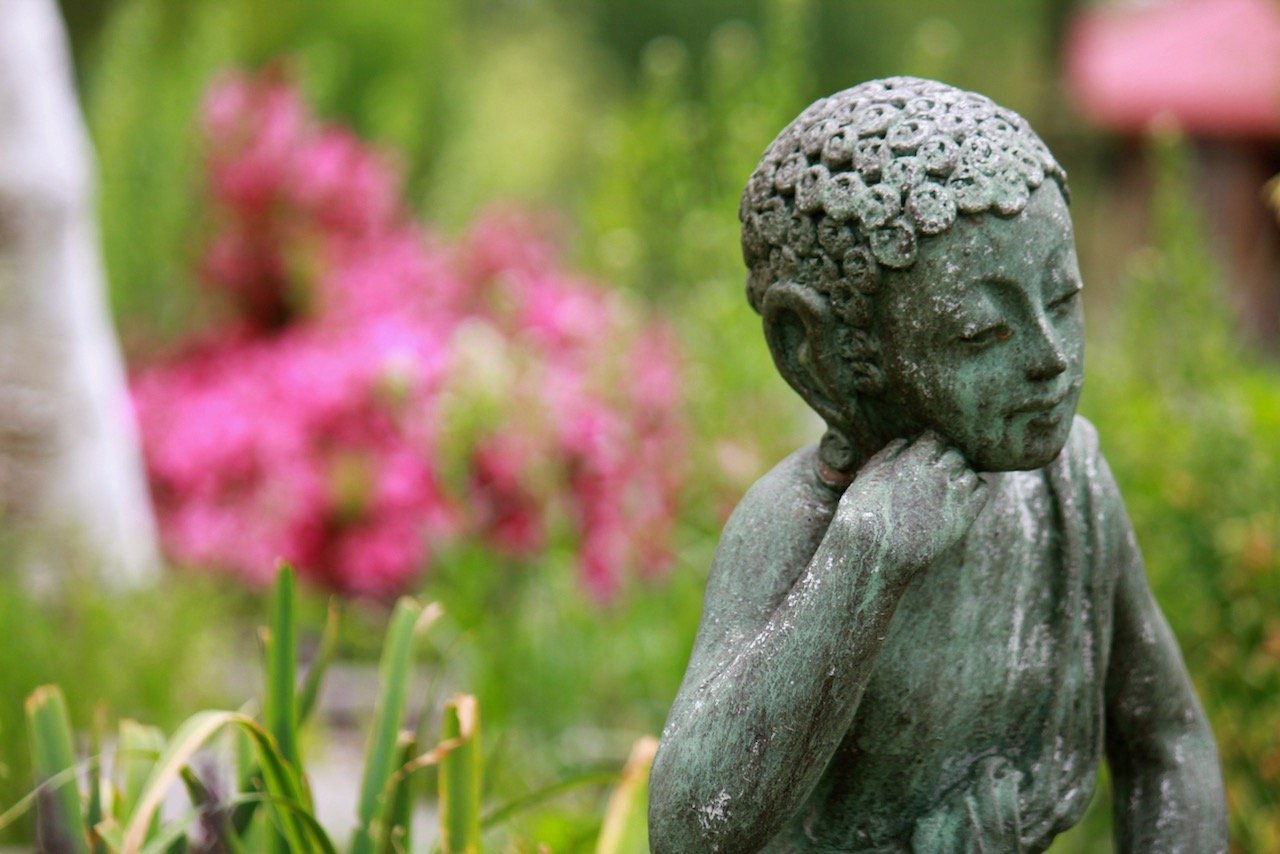
Foundations of Mindfulness Meditation
Course Resources
Session 1
Video Recording
Audio
Extra Resources: Guided Meditation on Listening (12 min) / Guided Meditation on Breathing (12 min)
Definitions of Mindfulness:
“Mindfulness is all about being aware, open, and receptive to what is happening in the present moment, with what happens right here and right now, and in this way it’s established only by staying with the here and now even as it assists us in remembering the past. Mindfulness can come in wholesome and unwholesome forms. Mindfulness that is aware of dukkha [‘suffering,’ or ‘dissatisfaction’], that is aware that I make contributions to it, and that aims at the diminishing of dukkha, is correct mindfulness. But think of the sniper. He’s mindful, but his intention is harm.” Venerable Analayo
"Mindfulness is a great translation for (part of) sati. It speaks to the attentional capacity we need to develop — especially because most of us are complete and utter scatterbrains, our thoughts and emotions constantly yank us around. But, in fact, despite all the focus on neuroscience, it’s not only about our brains. Sati is about training and increasing our capacity to be with our present moment experiences in a more easeful, non-reactive way. The body is the perfect place for that training. While the mind can (and does) pull us into the past or future, the body is only ever in the present moment. That’s why the breath and body are used as primary objects of meditation in so many traditions.” Sebene Selassie
“If while washing dishes, we think only of the cup of tea that awaits us, thus hurrying to get the dishes out of the way as if they were a nuisance, then we are not “washing the dishes to wash the dishes.” What’s more, we are not alive during the time we are washing the dishes. In fact we are completely incapable of realizing the miracle of life while standing at the sink. If we can’t wash the dishes, the chances are we won’t be able to drink our tea either. While drinking the cup of tea, we will only be thinking of other things, barely aware of the cup in our hands. Thus we are sucked away into the future—and we are incapable of actually living one minute of life.” Thich Nhat Hanh, The Miracle of Mindfulness, Chapter 1.
“Mindfulness is awareness that arises through paying attention, on purpose, in the present moment, non-judgmentally. Mindfulness is used in the service of self-understanding and wisdom.” John Kabat Zinn
Sati/Mindfulness: an embodied awareness of one’s inner and outer experience that strengthens an intimate and impersonal engagement with life while remembering the dhamma (ethics, 3 characteristics, etc…) Sati doesn’t require one to feel calm, to get rid of one’s thoughts, to do things slowly or to control one’s environment. Melina Bondy (working definition!)
Session 2
Video Recording
Audio
Resources
Standing and Walking Meditation, Ruth King
Article on Wheeling Meditation
Quotes
Furthermore, a [practitioner] examines their own body, up from the soles of the feet and down from the tips of the hairs, wrapped in skin and full of many kinds of filth. ‘In this body there is head hair, body hair, nails, teeth, skin, flesh, sinews, bones, bone marrow, kidneys, heart, liver, diaphragm, spleen, lungs, intestines, mesentery, undigested food, feces, bile, phlegm, pus, blood, sweat, fat, tears, grease, saliva, snot, synovial fluid, urine.’
It’s as if there were a bag with openings at both ends, filled with various kinds of grains, such as fine rice, wheat, mung beans, peas, sesame, and ordinary rice. And someone with good eyesight were to open it and examine the contents: ‘These grains are fine rice, these are wheat, these are mung beans, these are peas, these are sesame, and these are ordinary rice.’ And so they meditate observing an aspect of the body internally … That too is how a [practitioner] meditates by observing an aspect of the body. (from the Satipatthana Sutta)
"If beings knew, as I know, the results of giving & sharing, they would not eat without having given, nor would the stain of miserliness overcome their minds. Even if it were their last bite, their last mouthful, they would not eat without having shared, if there were someone to receive their gift." (Buddha, Iti 26)
Even after all this time, The Sun never says to the Earth, 'You owe me.'
Look what happens with a love like that - It lights the whole sky.” – Hafiz
“Even a wounded world is feeding us. Even a wounded world holds us, giving us moments of wonder and joy. I choose joy over despair. Not because I have my head in the sand, but because joy is what the earth gives me daily and I must return the gift.” - Robin Wall Kimmerer, Braiding Sweetgrass
Session 3
Video Recording
Audio
Resources
Thich Nhat Hanh on eating meditation: https://tnhmeditation.org/eating/
Thich Nhat Hanh on Interbeing: https://www.youtube.com/watch?v=UuVqp4KmNWk
Mindful Eating, with La Sarimento - https://dharmaseed.org/talks/31155/
Anatta/Anatman - 'not-self', non-ego, egolessness, impersonality, ownerlessness. Among all the things that do exist in the universe, none do exist by itself
Sunyata/Shunyata - zero, emptiness, hollowness
Session 4
Video Recording
Audio
Resources
Vedana - feeling tone, the affective tone of a sense experience which can be pleasant, unpleasant or neutral.
Working with pain and the gift of working with vedana - Dara Williams
Mindful of Feeling Tone - Martine Batchelor
Session 5
Video Recording
Audio
The Four Right Efforts (in brief)
1-preventing the unwholesome mind states from arising
2-stop feeding the unwholesome mind states that have arisen
3-encourage wholesome mind states to arise
4-strengthen already-arisen wholesome mind states;
The Five Hindrances:
Sensual desire (kamacchanda)
Ill-will (byapada)
Sloth and torpor (thina-middha)
Restlessness and remorse (uddhacca-kukkucca)
Sceptical doubt (vicikiccha)
Resources
Articles:
Relationship Comes First: on caring for our hindrances by Melina
Fine-tuning your practice with wise effort by Melina
Dharma Talks and Podcasts:
Bringing Tenderness to the Hindrances, Leslie Booker
Hindrances: An Origin Story by Leslie Booker
The 5 Things That Are Ruining Your Meditation (and Your Life) – And How to Handle Them | Bonnie Duran
Wise Effort: Cultivating and Engaged Presence by Tara Brach
Session 6
Video Recording
Audio
Resources
About the Precepts https://www.learnreligions.com/the-buddhist-precepts-450107
Zen Peacemakers Rule https://zenpeacemakers.org/2010/12/zen-peacemaker-order-rule/#mc_signup
Manzanita Village’s Five Practices: https://www.fivechanges.com/five-precepts/
Leap and the Net Will Appear, La Sarimento - https://dharmaseed.org/talks/50074/
The Five Precepts, Kaira Jewel Lingo - https://dharmaseed.org/talks/48400/
The Five Mindfulness Trainings https://plumvillage.org/mindfulness/the-5-mindfulness-trainings/
